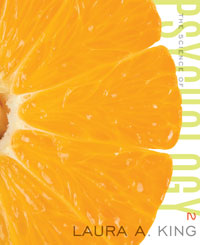1 A) shallow level B) intermediate level C) deepest level D) elaboration level 2 A) attention, processing, and elaboration. B) sensory memory, short-term memory, and long-term memory. C) the phonological loop, visuospatial working memory, and the central executive. D) episodic memory, semantic memory, and implicit memory. 3 A) 5 ± 2 B) 7 C) 8 D) 7 ± 2 4 A) visual information B) auditory information C) speech-based information D) spatial information 5 A) working memory B) episodic memory C) semantic memory D) short-term memory 6 A) episodic memory B) explicit memory C) priming D) procedural memory 7 A) parallel distributed processing. B) semantic networking. C) long-term potentiation. D) the serial position effect. 8 A) items stay in working memory longer. B) items were presented more recently. C) of long-term potentiation. D) items are less rehearsed. 9 A) first birthday until their mid-teens B) teens and twenties C) thirties and forties D) fifties and sixties. 10 A) retrieval failure. B) encoding failure. C) interference. D) transience. 11 A) retrograde amnesia. B) anterograde amnesia. C) problems with explicit memory. D) has problems with implicit memory. 12 A) intermediate level processing B) imagery C) elaboration D) chunking 13 A) Working memory; short-term memory B) Explicit memory; implicit memory C) Encoding; retention D) Episodic memory; semantic memory 14 A) She is testing recognition not recall. B) She is testing recall not recognition. C) She is relying on her visuospatial sketchpad. D) This will not be a problem for Abigail. 15 A) hierarchies B) semantic networks C) schemas D) connectionist networks 16 A) amygdale B) hippocampus C) thalamus D) reticular formation 17 A) context-dependent memory B) state-dependent memory C) priming D) motivated forgetting 18 A) retroactive interference B) proactive interference C) decay D) transience 19 A) A schema focuses on episodic memory, whereas a script focuses on semantic memory. B) A script is a specific type of schema that focuses on events, whereas other types of schemas focus on a variety of experiences. C) A script is more accurate than a schema. D) A schema is related to encoding, whereas a script is related to retrieval. 20 A) explicit memory B) implicit memory C) semantic memory D) episodic memory





